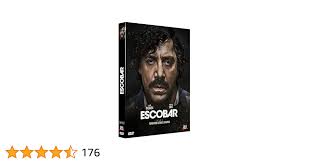The Intriguing Life and Legacy of Pablo Escobar

Introduction
Pablo Escobar remains one of the most notorious figures in modern history, representing both the dangers of the drug trade and the complexities of socio-political issues in Colombia during the late 20th century. His rise from humble beginnings to becoming the world’s wealthiest criminal has captivated audiences globally, highlighting the significant impact he had on Colombian society and the international narcotics landscape.
The Rise of Pablo Escobar
Born on December 1, 1949, in Rionegro, Colombia, Pablo Emilio Escobar Gaviria began his journey into crime at an early age. Initially involved in petty theft and smuggling, Escobar quickly ascended the ranks of the cocaine trade during the 1970s. By the early 1980s, he had established the Medellín Cartel, which controlled a substantial portion of the cocaine smuggled into the United States. At the height of his power, it was estimated that Escobar was earning as much as $420 million a week.
Influence and Impact
Escobar’s wealth and power allowed him to exert considerable influence over Colombian politics. He was known for his philanthropic efforts in his hometown, constructing hospitals, schools and soccer fields, which garnered him support from many locals. However, his reign was also marked by extreme violence, with thousands killed in the drug wars, including police officers, government officials, and innocent civilians. The infamous phrase, ‘plata o plomo’ (silver or lead), encapsulated his approach to silencing opposition.
The Fall and Legacy
In the early 1990s, increased pressure from the Colombian government and international authorities led to Escobar’s downfall. After multiple attempts to apprehend him, Escobar was killed in a shootout with Colombian National Police on December 2, 1993, just a day after his 44th birthday. His death marked a significant turning point in the fight against drug trafficking in Colombia. However, debates about his legacy continue. While many view him as a criminal, others regard him as a Robin Hood figure due to his charitable acts.
Conclusion
The story of Pablo Escobar serves as a stark reminder of the consequences of the illicit drug trade and its ramifications on society. His life evokes a mixture of fascination and horror, illustrating how one individual can significantly shape the course of history. As countries continue to grapple with drug-related issues, the lessons from Escobar’s life remain relevant, shedding light on the complexities of crime, poverty, and power in both Colombian society and the world at large.









